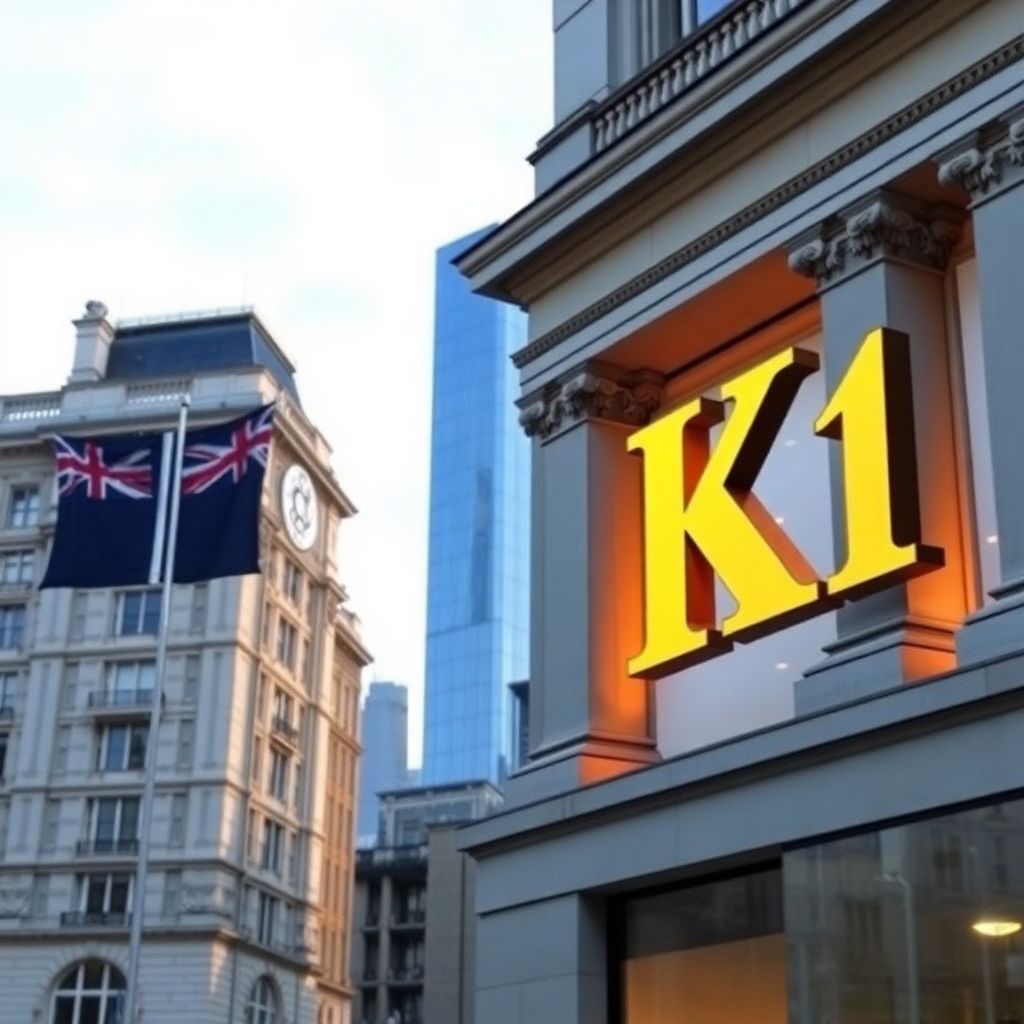British crypto investment firm KR1 is preparing to transition from the Aquis Stock Exchange to the prestigious main market of the London Stock Exchange (LSE), marking a significant milestone for digital asset companies in the UK. This strategic move reflects a broader shift in the country’s regulatory environment, which is becoming increasingly accommodating toward the cryptocurrency and blockchain sectors.
Headquartered on the Isle of Man, KR1 specializes in staking and early-stage blockchain investments. The company, established in 2014, has built a reputation for identifying and supporting promising blockchain projects, boasting over 100 investments to date. It generates revenue primarily by staking tokens such as Ether (ETH) and Polkadot (DOT), a process that involves locking up digital assets to support network operations and earn rewards.
The company’s co-founder, Keld Van Schreven, described the upcoming listing on the LSE as a pivotal moment. In his words, this move acts as “a starter gun for this new asset class on the LSE,” signaling the beginning of broader institutional acceptance of digital assets in the UK. Van Schreven emphasized that KR1 distinguishes itself from other publicly listed firms that simply hold cryptocurrency. Instead, KR1 is deeply embedded in the digital asset ecosystem through hands-on investment and staking strategies.
With a current market capitalization of approximately £56 million ($75 million), KR1 will become the first company of its kind—actively involved in blockchain development and staking—to be listed on the LSE. This transition is expected to be finalized within the next month and is anticipated to pave the way for similar firms to follow suit.
This development comes amid a noticeable shift in regulatory attitudes in the UK. The Financial Conduct Authority (FCA), which oversees financial regulations in the country, is gradually adopting a more supportive stance toward the crypto industry. Recently, the FCA granted approval for crypto exchange-traded products (ETPs) to be listed on the LSE—a move that was previously prohibited. Additionally, the UK government is working on a comprehensive regulatory framework for digital assets, expected to be unveiled in the coming year.
Alongside the FCA’s evolving policies, the Bank of England (BoE) is reevaluating its initial proposals on limiting corporate holdings of stablecoins—cryptocurrencies pegged to fiat currencies like the US dollar or British pound. The BoE had initially proposed limits of £21,000 (approximately $27,000) for individuals and £10 million (around $13 million) for corporations. However, regulatory authorities are now considering exemptions for businesses that require larger reserves of stablecoins to maintain liquidity and operational efficiency.
These regulatory reforms are part of the UK’s broader strategy to position itself as a competitive hub for fintech and digital innovation. This realignment also comes in response to international developments, such as the United States’ GENIUS Act, which seeks to establish clearer guidelines for digital asset firms operating within its jurisdiction. The global race for crypto regulation leadership is prompting countries like the UK to refine their policies to attract innovation and investment.
In contrast to KR1’s advancement, Argo Blockchain—a UK-based crypto mining firm—is taking a step back by delisting from the LSE. This decision is part of a larger restructuring plan that transfers control to its largest creditor, Growler Mining. Argo’s departure ends a six-year tenure as one of the few publicly traded crypto mining companies in the UK. Despite its exit from the LSE, the company intends to retain its Nasdaq listing in the US, provided it meets compliance requirements, including an upcoming reverse stock split by January 2026.
KR1’s move is particularly notable given that many digital asset firms have historically struggled to gain footing in traditional financial markets due to regulatory uncertainty and skepticism from institutional investors. However, as the UK begins to provide more clarity and support, companies like KR1 are seizing the opportunity to gain broader market exposure and credibility.
The migration to the LSE not only enhances KR1’s visibility among institutional investors but also signifies growing confidence in the digital asset sector. Listing on a major global exchange like the LSE brings increased transparency, liquidity, and investor protections, which could encourage more mainstream participation in blockchain and cryptocurrency markets.
Furthermore, KR1’s listing could help educate investors and regulators alike about the diversity within the crypto industry. Unlike companies that simply hold or trade cryptocurrencies, KR1 is deeply involved in the infrastructure layer of Web3, supporting projects that aim to decentralize finance, computing, and governance.
As the UK continues to refine its approach to digital assets, industry experts believe that more crypto-native companies will consider public listings. This trend could transform traditional stock exchanges into gateways for accessing the next generation of internet technologies and financial systems.
In the broader context of financial markets, the entrance of blockchain-focused firms into traditional exchanges like the LSE could reshape how investors perceive digital assets. Rather than viewing crypto as an isolated or speculative asset class, the integration of companies like KR1 into mainstream financial markets may help normalize the sector and integrate it into diversified investment portfolios.
The impact of KR1’s listing goes beyond its own business operations. It sets a precedent for regulatory acceptance and could catalyze a wave of public listings by other crypto infrastructure firms, DeFi platforms, or Web3 service providers in the UK and across Europe.
As the digital economy continues to evolve, the lines between traditional finance and decentralized technologies are becoming increasingly blurred. KR1’s strategic move is not just a company milestone—it’s a signal that the UK is ready to embrace the future of finance.

